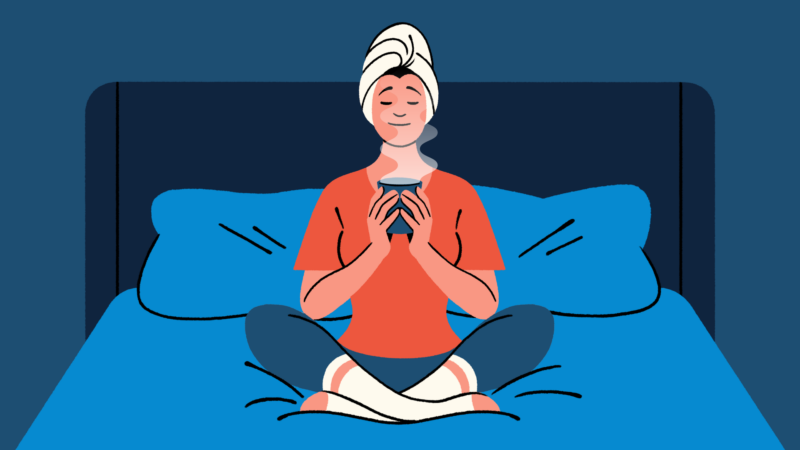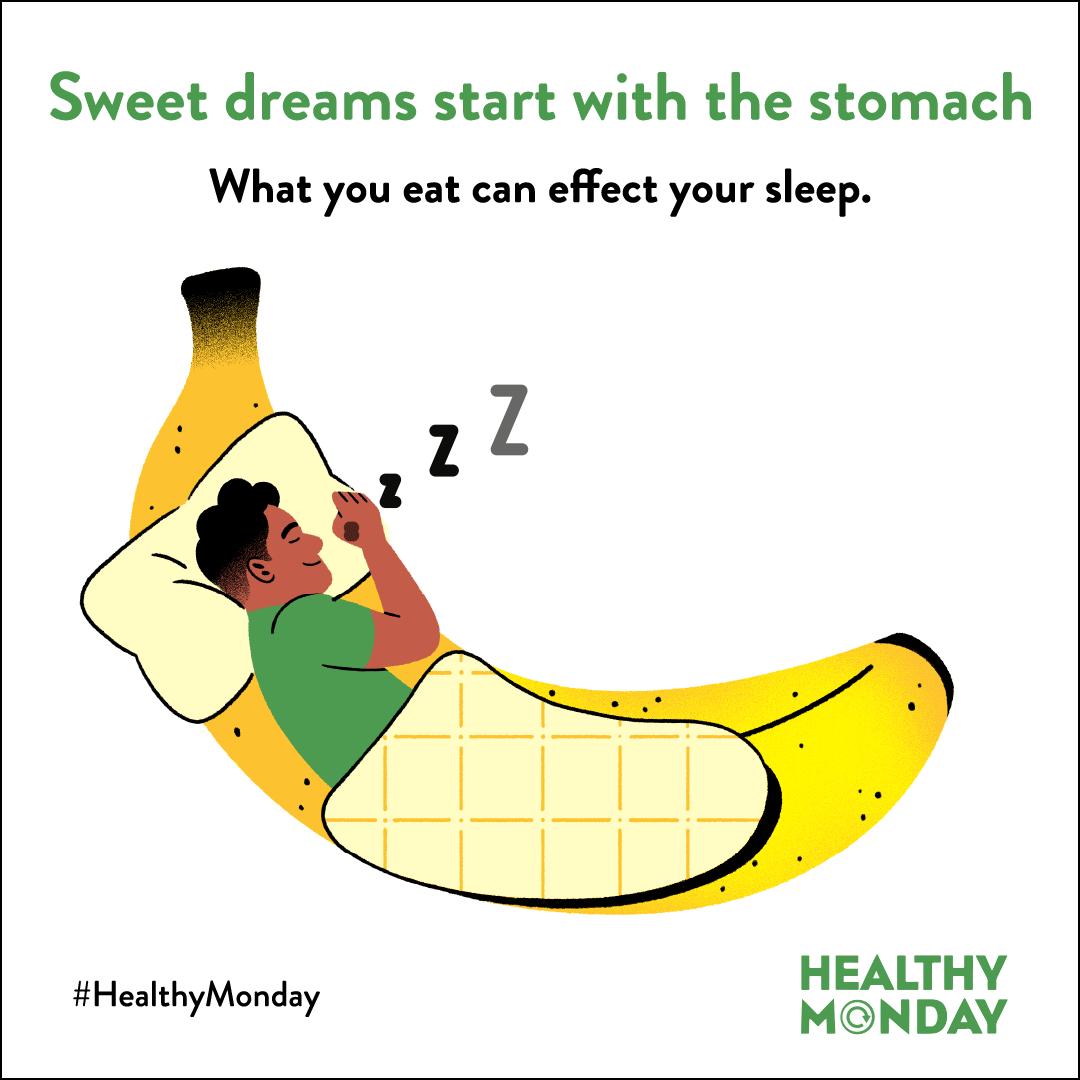What You Should (and Shouldn’t) Eat Before Bedtime
A lot of things keep us up at night: stress, excitement, nerves, loud neighbors, rambunctious children, but what you eat and drink before bedtime may also be the cause of your restless slumber. What we eat affects the quality and consistency of our sleep. Fruits, vegetables, legumes, and even spices all contain a complex array of nutrients that affect our bodies differently.
And while some ingredients can make it easier to fall asleep, others may have the opposite effect, keeping you wired and jittery for hours. So, the next time you’re planning your weekly dinner menu, be sure to keep your sleep schedule in mind.
What to Eat:
Almonds
A welcomed addition to a strawberry kale salad, trail mix, or Asian noodle bowl, almonds are packed with all the nutrients necessary for healthy eating. But almonds also contain certain minerals that make them useful sleep aids, specifically high amounts of magnesium, which has been found to reduce inflammation and levels of cortisol, a stress-hormone attributed to disrupting sleep.
Bananas
Universally beloved for its convenience and mellow flavor, the banana is also a good source of tryptophan, an amino acid associated with sleep. Have breakfast for dinner with a plate of banana buckwheat pancakes or a bowl of banana maple oatmeal, and set yourself up for a sound snooze.
Chamomile Tea
It’s well known, and well documented, that herbal teas can help you relax, but chamomile tea is particularly capable of improving your sleep. Chamomile contains apigenin, an antioxidant that binds to certain receptors in the brain that may promote sleepiness and reduce insomnia.
Kiwi
Who would’ve thought this odd, little, green fruit could be the answer to your restless nights? Okay, maybe that’s an overstatement, but research does show that kiwis contain high of serotonin, a brain chemical that helps regulate the sleep cycle. Kiwis can be tricky to eat, so we recommend throwing them into the blender for a late-night kiwi-basil smoothie.
Oatmeal
Complex carbohydrates, like oats, have the power to induce drowsiness before sleep. Oats — one of our favorite inexpensive Meatless Monday pantry staples — contain melatonin, making them a potentially useful sleep aid if consumed before bed.
What to Avoid:
Beans
The humble legume is packed with a bounty of nutritional benefits — protein, fiber, minerals — but beans may not be the best things to eat right before bed. Eating a bowl of chili or rice and beans before sleep, although delicious, is asking for a night of indigestion and gas pains.
Broccoli
Broccoli is a great addition to any diet, but it shouldn’t be consumed close to bed time. Fibrous foods, like broccoli, take the body longer to digest, which may keep you awake at night.
Candy
An evening full of candy or other sugary treats will have you tossing and turning in bed. Candy is typically composed straight sugar, which can cause wild swings in blood-sugar levels. The initial sugar crash may help you fall asleep, but afterward you’ll be stuck wide awake.
Cured Meats
Preserved meats contain high concentrations of the amino acid tyramine, which signals the brain to release norepinephrine, a neurotransmitter that readies the body for action. Levels of norepinephrine are lowest during sleep and highest during dangerous or stressful situations. Not an ideal combination for night time. Thankfully, there are plenty of plant-based swaps to satisfy your cravings for salty, fatty foods.
Spicy Food
Finishing off a spicy bowl of curry or cauliflower Buffalo wings will awaken your taste buds, but it will also keep you awake. Chile peppers can be good for you, but eating them before bedtime can lead to indigestion, heart burn, and elevated body temperature — physical qualities that impair sleep.

Want more sleep tips?
Our Healthy Monday Sleep Well package offers ten weeks of helpful practices designed to help you develop healthy habits and sleep better, one Monday at a time.
